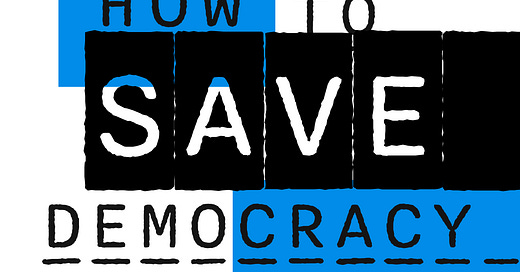My Dear Friend of Democracy,
Today, we'll take a look at the European Parliament, more specifically, its parliamentary groups.
First things first: What are parliamentary groups?
They can be based around a single European political party (e.g., the European People's Party, the Party of European Socialists) or can include more than one European party, national parties, and independents (e.g., the group "Greens–European Free Alliance").
Each group appoints a leader, who together meet in the Conference of Presidents to decide, for example, what issues will be addressed at the European Parliament's plenary session.
In any case, groups are important and mighty in the European Parliament.
So far, there have been six such groups. In the new parliament, there will be seven.
Instead of two, there will now be three groups to the right of the centre – one is dissolved, and two new ones will join.
The remaining group is the European Conservatives and Reformists (ECR). It is broadly eurosceptic, anti-federalist, and right-wing, with centre-right and far-right factions. The largest party in the group by number of Members of Parliament (MEPs) is Meloni’s Brothers of Italy (FdI), followed by Polish Law and Justice (PiS).
A new group is Patriots for Europe (PfE or P4E). Hungarian Prime Minister Viktor Orbán, former Czech Prime Minister Andrej Babiš, and former Austrian Minister of the Interior Herbert Kickl announced the group's founding at a press conference in Vienna in late June 2024. This week, Marine Le Pen's National Rally joined the alliance, making it the third-largest group. Jordan Bardella, the 28-year-old leader of National Rally, will head the newly formed group in the European Parliament.
The group that is dissolved is Identity and Democracy (ID). It merged into the Patriots for Europe after France’s National Rally (in French: Rassemblement National) and Italy’s Lega, two key former ID parties, joined the newly founded group.
Another group is currently being formed: The far-right Alternative for Germany (AfD) wants to build its own group in the EU Parliament with MEPs from nine countries. It says that the group will consist of 28 members from nine countries, 14 of whom are from the AfD. The AfD proposes the name "Europe of Sovereign Nations" (ESN) to the new partners. René Aust, a member of the Thuringian state parliament in Germany, is to become the group leader.
By the way: 23 members from seven member states are needed to form a group in the European Parliament.
✊ The fact that there will be three instead of two factions to the right of the centre in the European Parliament is a good sign. It shows that the right-wing parties are divided. That is no surprise. Nationalist parties have difficulty with cross-border cooperation. That is the nature of the beast. They thrive on denigrating foreign countries and their politics. So, there are good reasons to hope that the far-right parties will work poorly together at the European level.
See you in Europe,
Johannes




